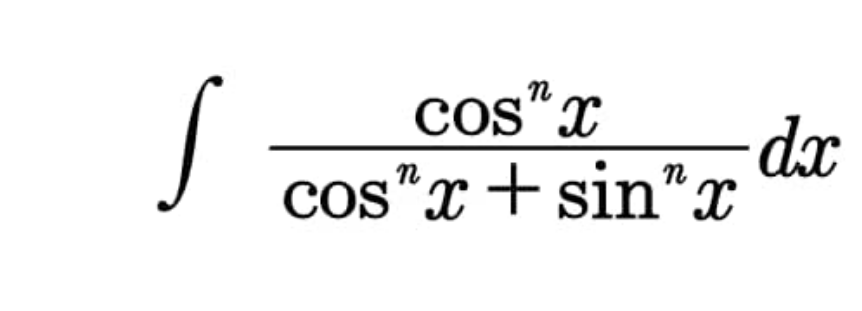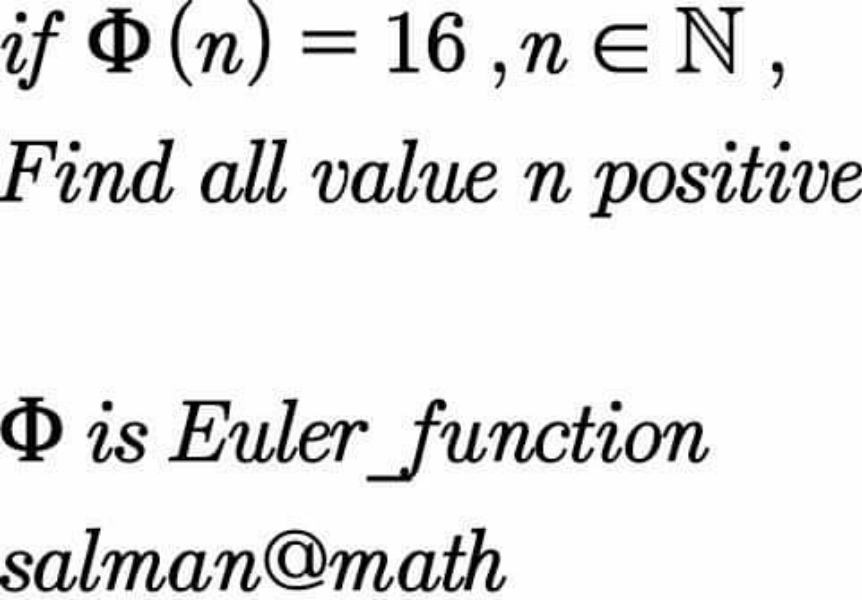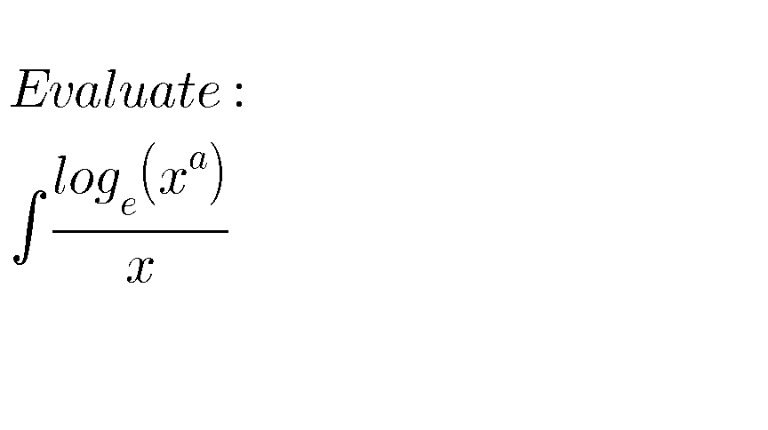
Question and Answers Forum
AllQuestion and Answers: Page 1142







Pg 1137 Pg 1138 Pg 1139 Pg 1140 Pg 1141 Pg 1142 Pg 1143 Pg 1144 Pg 1145 Pg 1146
|
Question and Answers Forum |
AllQuestion and Answers: Page 1142 |

|
| lim_(ω→∞) 20log(√(1+((ω/(100)))^2 )) |
| lim_(n→+∞) Σ_(k=1) ^n ((n+k)/(n^2 +k^2 )) {Reimann′s integral may help} |

|
| I=∫_0 ^1 ((1−x)/(x^2 +(x^2 +1)^2 ))dx find tan(I)+sec(I) |
| Evaluate : ∫ ((log_x a)/x) dx |

|
| find minimum value f(x) = (√(x^2 +9))+(√(x^2 −30x+250)) |
| Prove that Σ_(k=1) ^∞ (1/k^2 )=(π^2 /6) |
| calculate L( e^(−2x) cos(πx)) L laplace transform |
| find L (((sh(3x))/x)) L laplace transform |
| determine L(e^(−x^2 −x) ) with L laplace transform |
| f(x) =e^(−x) , 2π periodic developp f at fourier serie |
| let g(x) =(2/(cosx)) developp f at fourier serie |
| let f(x) =ln(2+cosx) developp f at fourier serie |
| ∫ ((xcos x−sin x)/(x^2 +sin^2 x)) dx |
| solve 2 ((2y−1))^(1/(3 )) = y^3 +1 |

|

|
| Given matrix A [((a c)),((b d)) ]and B ((x),(y_ ) ). Determinate A×B and B×A. |

|
| ∫secθdθ |
| solve (dy/dx) = ((x+y+4)/(x−y−6)) |
| It is given that f(x) is a function defined on R, satisfying f(1)=1 and for any x∈R, f(x+5) ≥f(x)+5 and f(x+1) ≤f(x)+1. If g(x)= f(x)+1−x, then g(2002) = ___ |

|
| Please how will you evaluate ∫ (√dx) ??? |
Pg 1137 Pg 1138 Pg 1139 Pg 1140 Pg 1141 Pg 1142 Pg 1143 Pg 1144 Pg 1145 Pg 1146 |